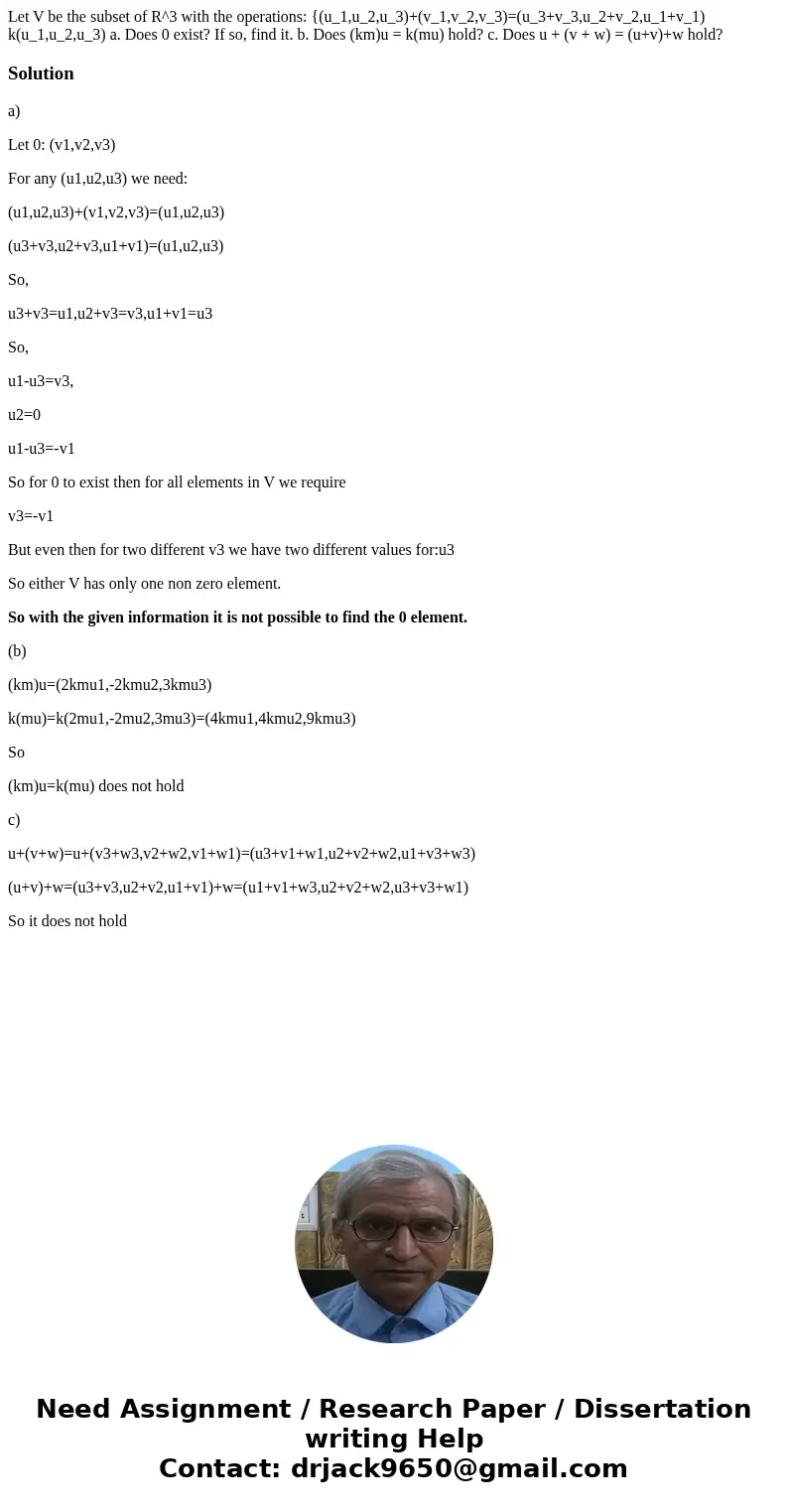Let V be the subset of R3 with the operations u1u2u3v1v2v3u3
Let V be the subset of R^3 with the operations: {(u_1,u_2,u_3)+(v_1,v_2,v_3)=(u_3+v_3,u_2+v_2,u_1+v_1) k(u_1,u_2,u_3) a. Does 0 exist? If so, find it. b. Does (km)u = k(mu) hold? c. Does u + (v + w) = (u+v)+w hold? 
Solution
a)
Let 0: (v1,v2,v3)
For any (u1,u2,u3) we need:
(u1,u2,u3)+(v1,v2,v3)=(u1,u2,u3)
(u3+v3,u2+v3,u1+v1)=(u1,u2,u3)
So,
u3+v3=u1,u2+v3=v3,u1+v1=u3
So,
u1-u3=v3,
u2=0
u1-u3=-v1
So for 0 to exist then for all elements in V we require
v3=-v1
But even then for two different v3 we have two different values for:u3
So either V has only one non zero element.
So with the given information it is not possible to find the 0 element.
(b)
(km)u=(2kmu1,-2kmu2,3kmu3)
k(mu)=k(2mu1,-2mu2,3mu3)=(4kmu1,4kmu2,9kmu3)
So
(km)u=k(mu) does not hold
c)
u+(v+w)=u+(v3+w3,v2+w2,v1+w1)=(u3+v1+w1,u2+v2+w2,u1+v3+w3)
(u+v)+w=(u3+v3,u2+v2,u1+v1)+w=(u1+v1+w3,u2+v2+w2,u3+v3+w1)
So it does not hold

 Homework Sourse
Homework Sourse